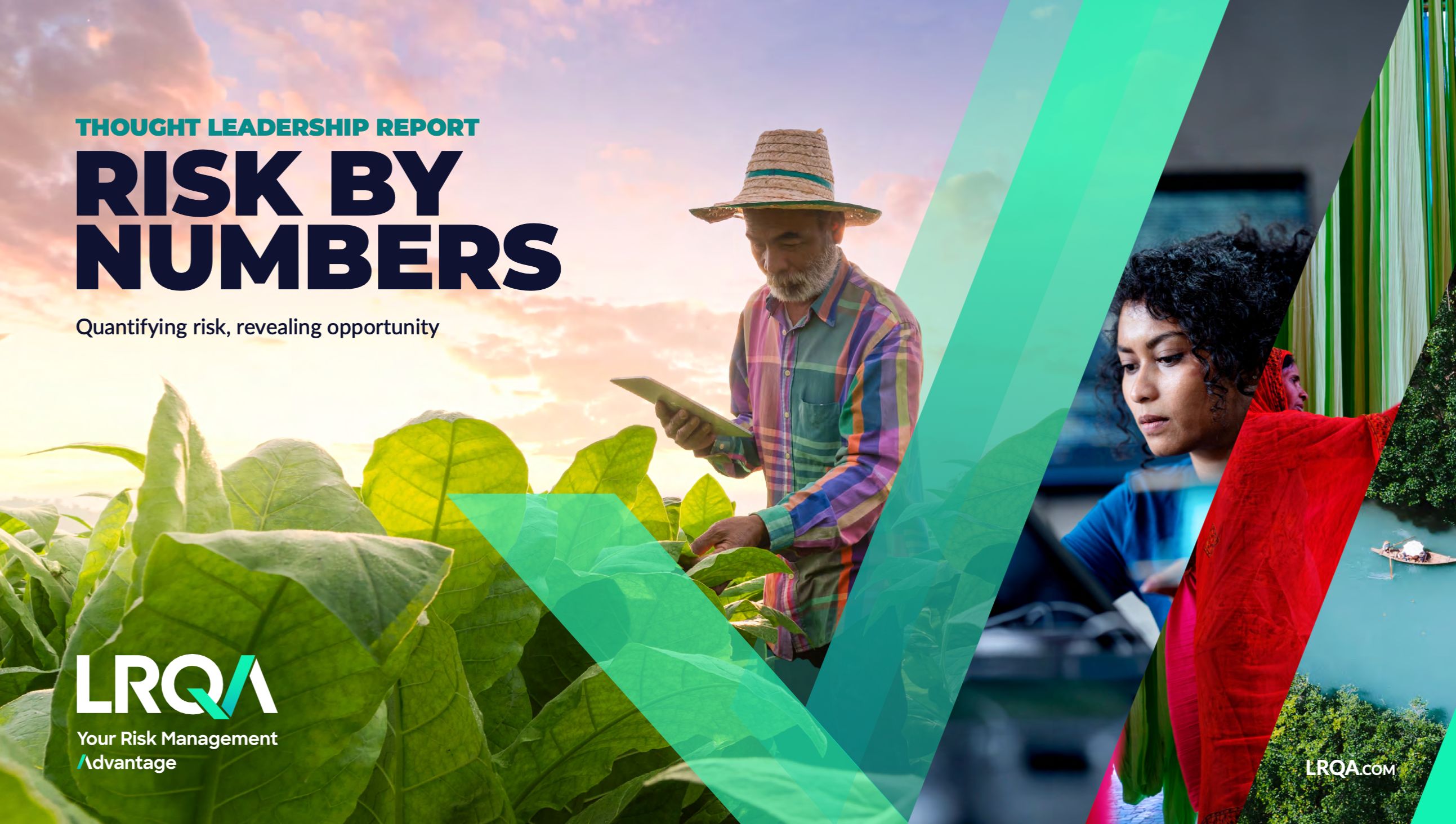LRQA | Risk By Numbers

In today’s high-velocity global business environment, risk can rarely be contained or managed in isolation. Risk is interconnected, dynamic and constantly evolving and should be treated as a signal and a driver of opportunity. Leading organisations treat risk management as a source of strategic advantage, and simply good business, rather than just a compliance obligation.
71% of companies with mature risk management capabilities say these competencies help mitigate the negative impacts of global crises (Boston Consulting Group, 2023).
In fact, companies that treat risk as a connected system, rather than a set of siloed checklists, report faster crisis recovery times, improved investor confidence and stronger brand trust – with consumers increasingly favouring brands with visible sustainability credentials in particular. On the other side of the coin, there is a material cost if organisations are complacent in this space.
Global cybercrime is projected to cost $10.5 trillion annually by 2025, up from $3 trillion in 2015, making it the third-largest economy in the world if measured by GDP (Cybersecurity Ventures).
Meanwhile, supply chain disruptions are increasingly costly, with 81% of firms experiencing supplier-related disruptions in the past two years (RapidRatings, 2025), and academic research finds that Environmental, Social and Governance (ESG) - related controversies lead to an average c.0.29% drop in stock returns in the short term (Nicolás et al., arXiv, 2023).
This report explores both sides of the equation: the tangible, compounding costs of inaction and the value-creating opportunity that lies in smart, joined-up risk thinking.
Drawing on a combination of global data, public domain analysis and insights from our own subject matter experts, we examine what happens when risk is neglected, and what’s possible when it’s managed strategically.
WE’LL EXPLORE
- The real-world cost of overlooked cyber, ESG and operational risks in the supply chain
- How risk is evolving, from climate shocks to AI ethics
- Mini case studies from sectors including energy, food and finance
- A five-point framework for transforming risk management from a reactive function into a proactive engine of resilience, confidence, transparency and trust
- Expert commentary on what ‘best practice’ looks like in 2025
Ultimately, Risk by Numbers isn’t about driving fear in the boardroom, it’s about providing clarity around the scale of potential impact.
The organisations that thrive in today’s risk landscape will be those who see risk as something to understand, connect and lead through.
Click here to download the report.
